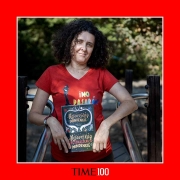Prins & Herceg through the shredder
Inclusion, exclusion, politics, and the complex translation history of a Dutch picture book
Nothing provides better proof of how alive literature is today, than the complex and ideologically laden reception history of the Hungarian storybook Meseország mindenkié (Fairy Tales Are For Everyone), which also includes a fascinating case of Dutch-Hungarian-Dutch literary transfer. #Literature & Society
Fairy Tales Are For Everyone
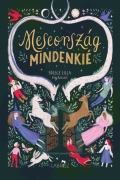
In September 2020 the Hungarian Labrisz Lesbian Association published a volume of 17 tales by 17 contemporary authors. Some of the authors, well-known Hungarian writers and poets, were asked by the project team under the coordination of Dorottya Rédai to “retell a classic fairy tale that was important to them from a specific point of view. Let the experience of the present prevail in it, and do not hesitate to choose a hero with whom the minority, those who live in a marginalized situation can especially identify, without making the text ‘didactic’” as the editor of the volume, Boldizsár Nagy M., writes in his Preface. Another part of the stories was selected from entries submitted to the creative competition announced by the association. #Childrens' Literature #Gender
Prins & Herceg through the shredder
The creators, editors and authors could not have known that the 1,500 copies of the first edition would be bought up in no time, that more than 30,000 copies would be sold a year later, and many new editions would be needed to meet the demands of the Hungarian readership. They could not know that a year after the first edition, the first translation of the volume would be published, in Dutch, in the excellent interpretation of Mari Alföldy. Nor did they realise that by the same time, the editions of the English, Finnish, Swedish, as well as the Slovak, Polish, Czech and Estonian translation would already be in progress. They could have guessed, but they did not know, that after the publication of the volume, it would stand in the crossfire of attacks from far-right circles and counter reactions to these. They could not know that five days after the presentation of the book, the MP of the far-right Our country party would tear the pages from the book one by one and put them through the shredder in her press conference with the title “Hungary, is not for the aberrant!” The performance, like the book, provoked fierce reactions. The Association of Hungarian Publishers and Distributors, for example, gave the following statement: “The destruction of books for political purposes is one of the most shameful historical monuments in Hungary and Europe. It is not a simple expression of opinion, but an identification with the legacy of Nazi book burning and communist book shredding. Get your hands off the books!” The irony of fate is that in part, it was exactly this homophobic performance that led to the book’s tremendous success. The case has become widely known abroad, and Dorottya Rédai has been selected by TIME Magazine as one of the 100 most influential people of 2021.
A Dutch picture book and the discussion about sexual diversity
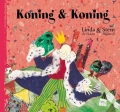
However, within the framework of the charged history of the origin- and reception history of Fairy Tales Are For Everyone, a no less exciting process of Hungarian and Dutch literary transfer also took place. One of the authors of the anthology, Zoltán Csehy, a multilingual Hungarian poet in Slovakia, also a literary historian and translator, lecturer at the Comenius University in Bratislava, wrote the poem based on a Dutch children's book. That is, he adapted the Czech translation of this Dutch book, under the title Házasodik a herceg (The prince is getting married). The original text, the Dutch picture book Koning & Koning is a collaboration of the graphic artists Linda de Haan and Stern Nijland and was published in 2000. This book is also internationally renowned and has been translated into more than twelve languages and has been adapted for stage several times. In Koning & Koning a prince, urged by his Queen mother to get married, chooses another prince instead of the princesses her mother invites as possible candidates. The two princes get married and govern the country as King & King. The authors state that their book was not written as a “thematic book,” but they claim proudly that since its publication, it has “become known as a picture book for promoting the discussion about sexual diversity”.
An unlikely Central European translation and adaptation loop
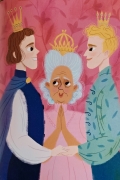
Csehy had read the Czech translation of the book by Adela Elbel and used it as a source for the “classic fairytale” mentioned in the call of the Labrisz Association. In his processing, however, he treated the original source text, to which he refers in the subtitle with great artistic freedom, changing it almost beyond recognition. He adapted the prose into poetry, rewrote it, and extended it. For example, he smuggled a Hungarian contestant among the candidate princesses, which – as one must note – did not change the choice of the prince. Just as importantly he only took over the text from the book of De Haan and Nijland. This is not surprising, since he contributed his work to an anthology, all the stories of which are uniformly illustrated by the pictures of the Hungarian graphic artist Lilla Bölecz. It should, however, be noted that Csehy had incorporated elements of the original rich image world of the Dutch authors. He responded to the evocative pictures allowing a multi-levelled interpretation of events and incorporated some of the information in the textual medium of his poem. But with the loss of the original images the unity of the balance of pictorial and textual media in the original storybook is nonetheless broken. Looking at the result, however, Csehy’s adaptation is a success. It is humorous and attractively in its versification, complexly thought provoking, inviting different levels of readings. It is one of the most enjoyable works in the anthology.
The Princes’ return to the Netherlands
Thus, Mari Alföldy translated the Hungarian adaptation of the Dutch children's book, which was based on the Czech translation, back into Dutch as part of the Dutch translation of the anthology, Sprookjesland is voor iedereen. #Translators In the last line, the translator – who maintained the verse form – even gives a textual wink, only understood by the initiated readers. Instead of translating Csehy's words sticking close to his text, she quotes almost verbatim the line from the original Dutch children's book: "En prinsen zouden voortaan als koning en koning door het leven gaan" [And the princes lived their lives as King and King from then on]. It is not clear whether the Dutch authors of Koning & Koning are familiar with this adapted and multiply translated version of their book, which returned to Dutch in 2021, after making such an implausible and strange Central European detour. It is unclear whether they would consider the Dutch translation as (also) their own work if they did. But let us hope that they would not take offence and would rejoice in the viability of their work, which has returned to Dutch literature through three languages and through the hands of so many enthusiastic creative artists committed to literature and the importance of diversity. As I write, as I say: literature without boundaries!

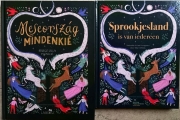

(Orsolya Réthelyi)
References
Babcsán Vanessza: Een vergelijkende analyse van Koning en koning van Linda de Haan en Stern Nijland en Házasodik a herceg van Zoltán Csehy [Linda de Haan és Stern Nijland: Koning en koning és Csehy Zoltán: Házasodik a herceg összehasonlító elemzése]. BA Thesis, ELTE BTK, Budapest, 2021. (Supervisor: Eszter Simonfi. Manuscript.)
Csehy, Zoltán. „Házasodik a herceg. Linda de Haan és Stern Nijland leporellója alapján megverselte, átdolgozta Csehy Zoltán”. In Nagy Boldizsár (ed.) Meseország mindenkié. Budapest: Labrisz, 2020, pp. 168-175.
Csehy, Zoltán „De prins gaat trouwen”. In Boldizsár Nagy (ed.) Sprookjesland is van iedereen, vertaald door Mari Alföldy. Matan Publishers, 2021, pp. 168-174.
Nagy, Boldizsár (Ed.) Sprookjesland is voor iedereen. translated from the Hungarian by Mari Alföldy (Matan Publishers, 2021). Forthcoming.
Nagy, Boldizsár (Ed.) Fairy Tales Are For Everyone, translated from the Hungarian by Anna Bentley (HarperCollins). Forthcoming.
Nijland, Stern & Linda de Haan Koning & Koning (2000).
Nijland, Stern & Linda de Haan Princ & Princ (2013), translated by Adela Elbel. Praha: Meander.
Réthelyi, Orsolya & Babcsán Vanessza. „Prins Herceg a darálóban. Befogadás, kirekesztés, politika és egy holland mese bonyolult fordítástörténete.” In Judit Gera, Gábor Pusztai, Orsolya Réthelyi & Anikó Daróczi (eds.). A holland nyelvű irodalom története [The History of Dutch Literature]. Budapest: Osiris, 2022.

